AMERICAN INSURRECTION is a riveting, powerful film and, dare I say, a cautionary tale. An intense pot-boiling character study and societal study from director William Sullivan and writers Sullivan and Jarret Kerr that is emotionally raw and visceral. But what stands out is that the film has a heartbeat; a heartbeat for tolerance, peace, and understanding that comes through the characters of Zahbi and Gabe – both of whom have seen violence and war first-hand and know the cost of divisiveness and hatred.
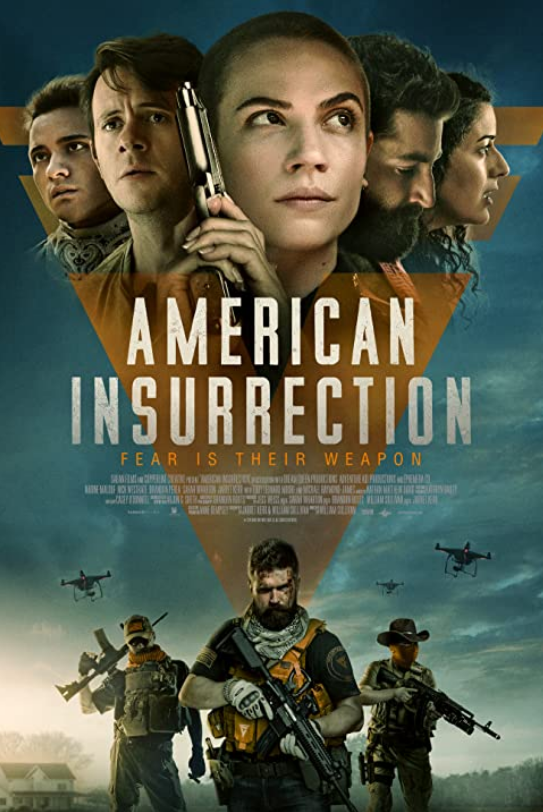
Generically described as a film set in a “dystopian America” where a civilian militia calling themselves “Volunteers” track all persons by using a human barcoding system. If you are white, straight, Christian, and cisgender, no barcode for you. But for everyone else, they are marked for life and targets for the Volunteers. Citizens and residents are nothing more than items on the grocery shelves of the Volunteers who pick and choose which “products” to keep on the American shelves and which to eliminate. But the Volunteers are not one small group in one small area. They are everywhere and led by a US President known as “The Founder” who employs the Volunteers as his national police force.

AMERICAN INSURRECTION focuses on one small group of individuals hiding out near the Canadian border. Led by Sarah and her husband Jarrett, the plan is to hole up at this house with some friends and wait for a call on their 24/7 monitored CB radio with the coordinates to where Sarah’s group can safely escape. Sarah has used this house as a kind of present-day Underground Railroad, helping others escape from the tyranny of The Founder and his Volunteers. Making this location ideal for her purposes is that the home with its expansive land, trees, and barn is owned by a Volunteer named Gabe whom Sarah has chained in the barn. Volunteer homes are official no-fly/no-drone surveillance zones. The only obstacle Sarah must overcome is the daily walkie check-in by the Volunteers with the homeowner. With violence and withholding food as an incentive, Gabe provides the audible check-in when one of Sarah’s group brings him the walkie.

Also hiding and waiting with Sarah and Jarret are Zahabiya, a Muslim whose family was killed in a mosque bombing by the Volunteers, and her husband David, a nurse with an ever-increasing alcohol problem. While the patience of Jarret and David runs thin, Sarah’s resolve to await word only intensifies. Zahabiya or “Zahbi” as she is called, prefers to err on the side of caution and wait, but her thoughts and views are also very centrist as she looks at both sides and thinks rationally and calmly. This waiting game allows time for conversation and flashback reflection, providing context and depth with each character, giving them and us, more understanding of who each truly is, what demons they are battling, and importantly, where the weak links in the chain may be.
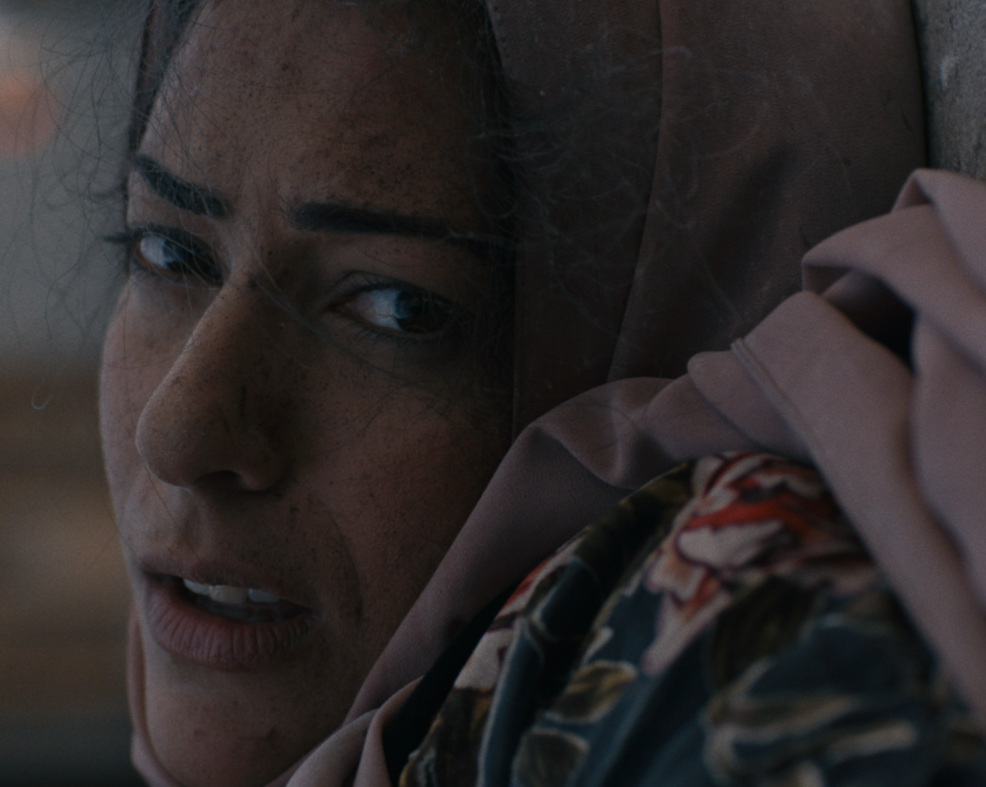
Adding another layer to the situation is Arjay, a young gay Filipino who aided Sarah and provided a distraction at a Volunteer checkpoint resulting in consequences neither could foresee. (Well, they should have seen them.) When Sarah brings Arjay back to the house, tensions flare in more ways than one and it becomes increasingly obvious that Sarah’s plan to wait for that CB call cannot be the game plan. And it’s because of these tensions that Zahbi is now the one, not Sarah, to bring food and water to Gabe in the barn. But those moments between Zahbi and Gabe are what truly showcase the issues at hand in not only AMERICAN INSURRECTION but in our world today.
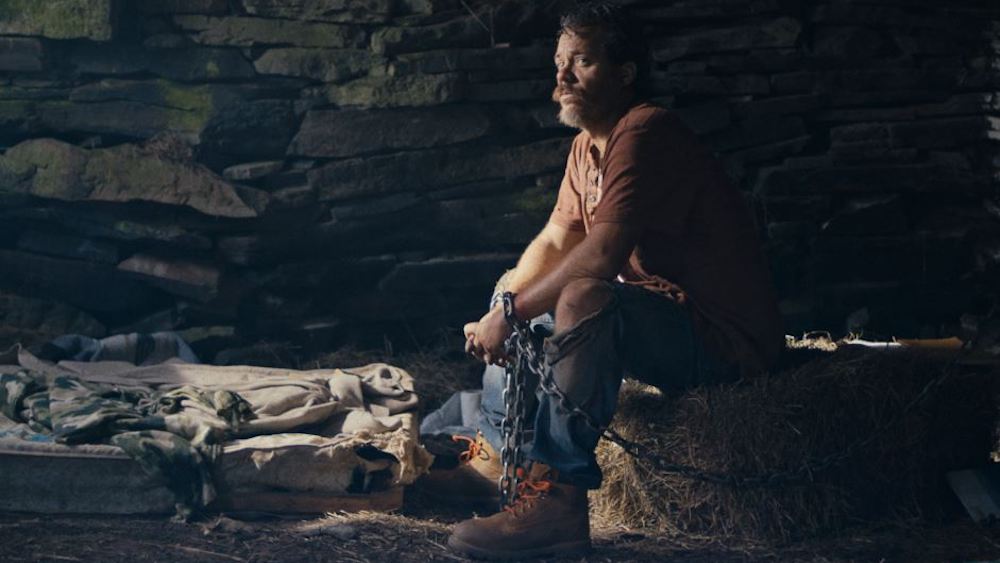
At about the midpoint of the film, Zahbi brings some beers out to Gabe, wanting to talk and understand. A watershed moment as the dynamic of AMERICAN INSURRECTION shifts at this point. Calm, reasoned and rational, personal, heartfelt, intimate. Watching Nadine Malouf and Michael Raymond-James as Zahbi and Gabe, respectively, in those moments is like a master class that is then elevated even higher thanks to the work of director William Sullivan and cinematographer Brandon Roots who visually reflect the building of trust between Zahbi and Gabe by incrementally zooming in closer on each of them; their faces, their position on the ground, the line in the sand and how both inch ever closer, the tips of their shoes almost touching. The emotion you feel watching this is pure; hopeful. Trust is built. But just how much trust and is it to be believed. What follows is not only heartfelt, but raw, visceral, and shocking.
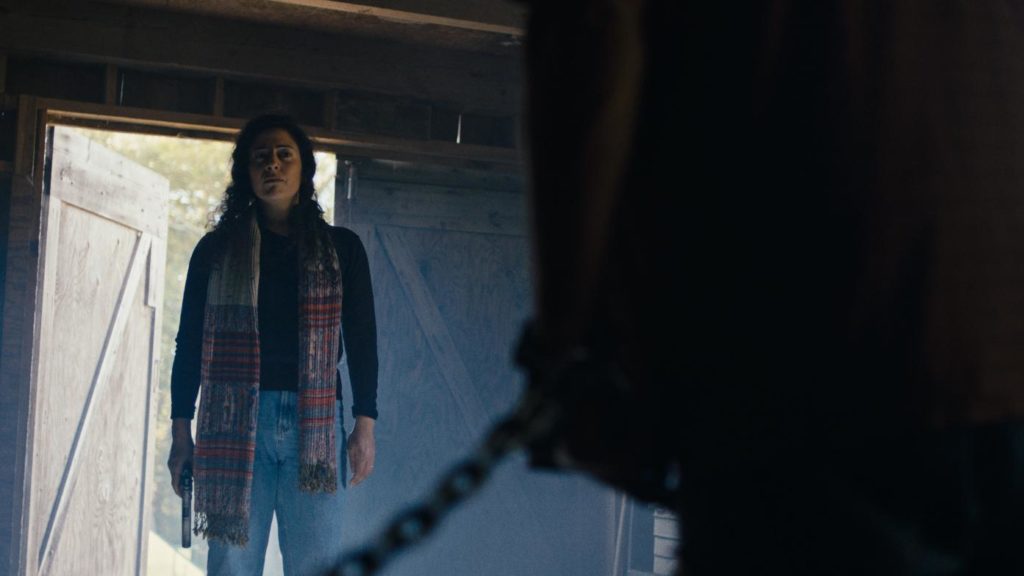
Performances are solid, most notably those of Nadine Malouf as Zahbi and Michael Raymond-James as Gabe. Also onboard are Sarah Wharton as Sarah, Jarret Kerr as Jarret, Nick Westrate as David, Brandon Perea as Arjay, and, in a scene-stealing turn, Toby Leonard Moore as The Founder.

Sullivan and co-writer Jarret Kerr pay attention to character with the development of each being thorough, layered, and tapestried with emotion, history, and color. And the deeper we get into this waiting game they are playing, as secrets bubble to the surface, the more hatred and prejudices come to light even among “their own kind”. Jarrett truly is one violent mutha. He could very easily have been one of “The Volunteers”. David craves belonging – and wants his cake and eat it too – and is easily swayed or manipulated by whoever pays him some attention leading to the truth of his deceitful nature. Sarah is robotically obsessed with her plan, her way, her CB. But as Jarret pushes her to leave and his true natures emerge, we learn what is driving Sarah, what has made her so cold, so calculating.
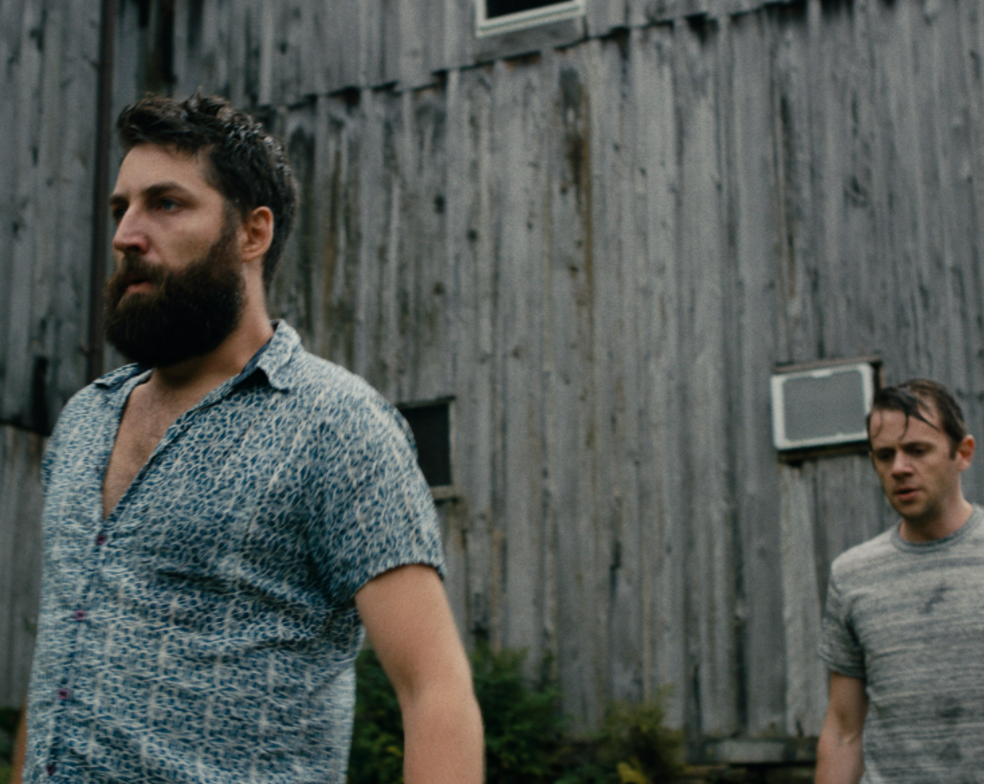
The “non-linear” structure of the script works well in that as we are taken to the past with a memory or moment of each character, that transition is done with an ECU zooming out into a slightly wider present-day two-shot. It’s an interesting technique that serves this story well and has an unforced feel to it.

The barn scenes are particularly well lighted and lensed by Brandon Roots, providing a metaphoric balance of light and shadow that speak directly to the characters of Zahbi and Gabe and what transpires between them in conversation. Overall visual tonal bandwidth is clear, clean, and unfettered, letting the production design and interiors of the house metaphorically speak to the secrets and hurdles the group is facing.
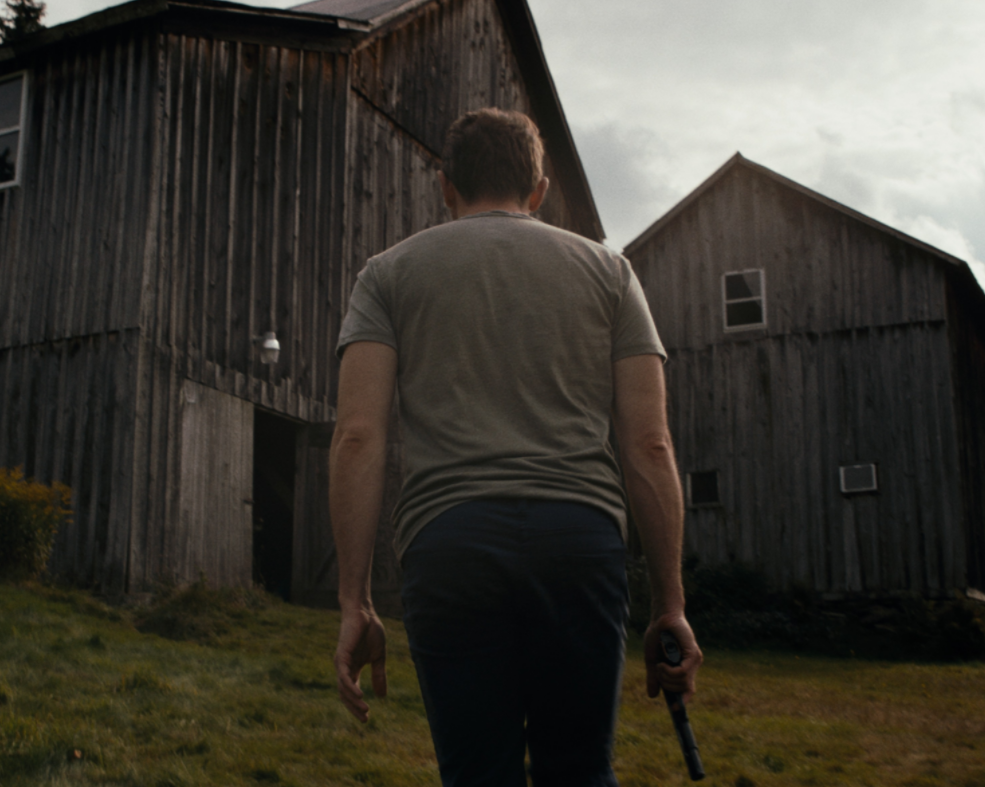
Nathan Matthew David’s score is subtle and effective.
AMERICAN INSURRECTION is a pot-boiler, just like the world in which we live and with the events, we have seen and continually see unfold. Providing tacit socio-political commentary on where we as a nation are headed if we aren’t careful, Sullivan and Kerr hold the mirror up to each of us, individually and collectively, asking us to pay attention.
Directed by William Sullivan
Written by Jarret F. Kerr, William Sullivan
Cast: Nadine Malouf, Michael Raymond-James, Sarah Wharton, Jarret Kerr, Nick Westrate, Brandon Perea, and Toby Leonard Moore
by debbie elias, 10/9/2021











